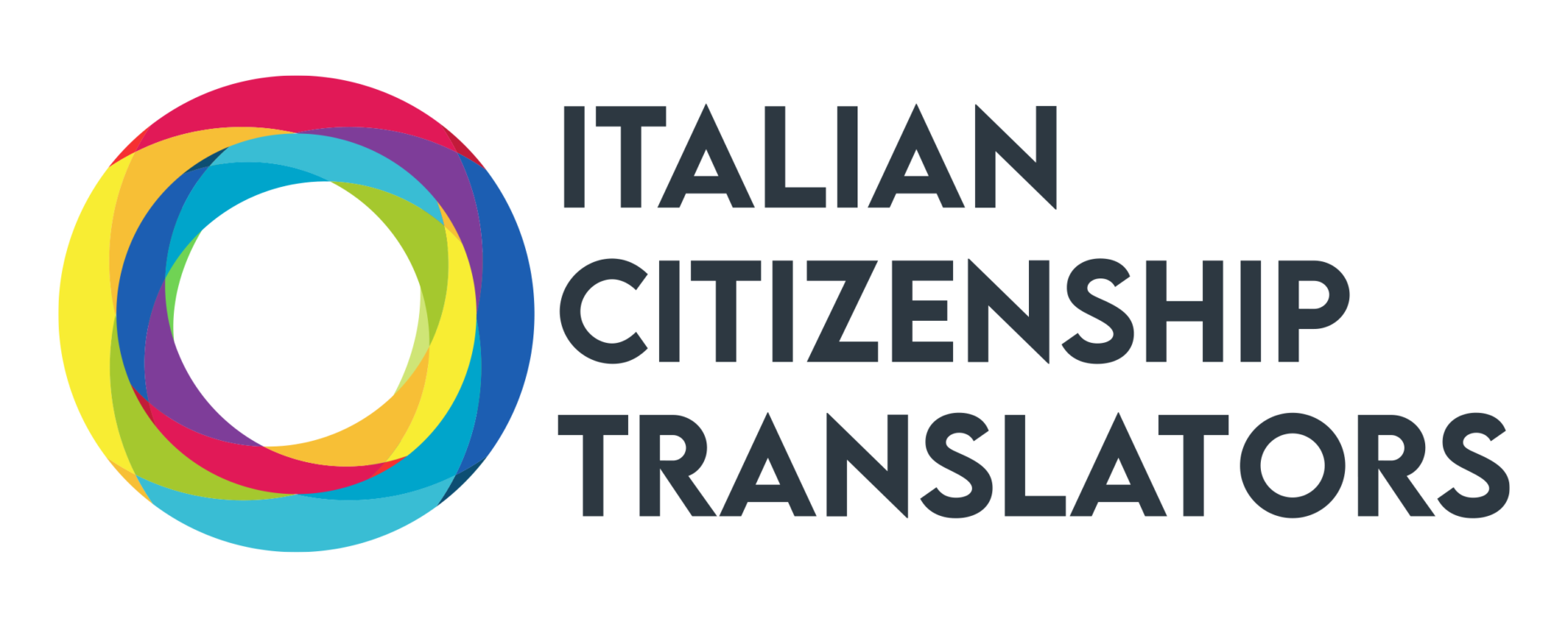
How to translate vital records for a citizenship application at an Italian consulate
One of the most important requirements to file an application for Italian citizenship by descent is translating all the vital records needed to apply into Italian. These can be divided into two categories: the vital records pertaining to the individuals in your Italian lineage and your own vital records. While the former will be used by the consulate to verify your eligibility to apply for Italian citizenship, your own vital records will ultimately be registered in the municipality in Italy which holds your Italian ancestor’s birth certificate. In fact, once the consulate approves your application, they will send your vital records (birth, marriage and divorce certificate, if applicable) to the municipality in Italy where your ancestor was born in order for the municipality to register them. Once the municipality has registered your records, you will be considered an Italian citizen from a legal standpoint; the municipality will then register you with the A.I.R.E. (Registry of Italian Citizens Residing Abroad) and that will ultimately allow you to apply for a passport at the Italian consulate which covers the jurisdiction where you reside. Although the vital records pertaining to the individuals in your Italian lineage are not registered in Italy, as a general rule they will need to be translated; however, consulates have different requirements with regard to this, therefore it is always worth double-checking with the consulate where you will be applying for citizenship. So, how do you translate the vital records needed to apply for citizenship at an Italian consulate? Can you translate your records by yourself? This article will provide you with an overview of the most important aspects you need to consider if you are preparing an application to be submitted to an Italian consulate in the United States or outside of the U.S.
Applying for citizenship at an Italian consulate in the United States
Generally speaking, Italian consulates in the United States require an applicant to submit certified copies of his or her own vital records and those pertaining to the individuals in the applicant’s line of descent. The records must be legalized with apostilles and accompanied by a translation into Italian. In addition to these records, some consulates also require that the applicant provides the vital records pertaining to the spouses of the individuals in the Italian lineage and the respective translations, however, this depends on the specific consulate to which the individual is applying. Documents related to the Italian ancestor’s naturalization, including letters of negative search issued by NARA (The National Archives and Records Administration), Certificates of Non-Existence issued by USCIS (The United States Citizenship and Immigration Services) and census records do not need to be translated if they are being submitted to a consulate in the U.S., but they need to be translated if they are being submitted to a consulate outside of the United States.
As previously mentioned, please note that all the vital records need to be authenticated with an Apostille. With regard to this it is worth pointing out that most consulates in the U.S. do not require the apostilles on the vital records to be translated into Italian, unless otherwise specified.
It is also worth pointing out that vital records issued by an EU member state in the multilingual standard form do not need to be translated.
If an applicant’s vital records are issued in the U.S., consulates generally accept uncertified translations. This is due to the fact that the consular personnel are required to speak the language of the country in which they are based. However, there are some consulates such as the one in New York, for instance, which at the time of writing this article requires applicants to provide certified translations of specific legal documents, such as name change certificates and divorce records. In this case, a translator may certify the translations of the records before a public notary in the United States.
On the other hand, if the vital records submitted to a consulate in the U.S. are issued by a foreign country, the translations will need to be certified. In particular, this will need to be done by the Italian consulate in the foreign country which issued the records.
Applying for citizenship at an Italian consulate outside of the United States
If you apply for Italian citizenship at a consulate outside of the U.S., you will be required to provide your vital records and the ones pertaining to the individuals in your Italian lineage only. In other words, the records pertaining to their spouses will not be required. However, contrary to applying at an Italian consulate in the U.S., if you apply outside of the United States you will need to provide certified translations of all your vital records. The reason for this is that although the consular clerks processing your application might speak English, by law they are required to speak Italian and the language of the country where the consulate is located, therefore they cannot guarantee and verify that the translations into English are accurate.
More specifically, consulates outside of the U.S. generally require the translations to be sworn before a court (or the Justice of the Peace) or a notary in Italy as this gives the translations legal value.
Finally, it is worth pointing out that if you apply for citizenship via an Italian consulate outside of the U.S., you might also need to translate the apostilles on your vital records.
Why do we recommend relying on the help of a professional translator?
We discourage DIY translations as consulates tend to be very strict with regard to translations and to how documents are presented for a citizenship application. In particular, using Google Translate or similar websites is not recommended as consulates often reject applications that are written by individuals who are not fluent in Italian. It is also worth pointing out that all the information on a vital record needs to be translated accurately in order for the consulate to process an application. In this sense, it is also important that the seals and signatures on the translated record match the ones on the original record.
Final remarks
In conclusion, this article has sought to explain how vital records need to be translated if you are filing your application at an Italian consulate either in the U.S. or outside of the United States. As the translations for your vital records are a crucial step in the process of applying for Italian citizenship by descent we suggest you make sure that your translations always comply with the consulate’s requirements. If you have any questions or you would like to learn more about this topic, do not hesitate to contact us at info@italiancitizenshiptranslators.com. We will be happy to help you.
citizenship application, consulate, italian citizenship, translators
